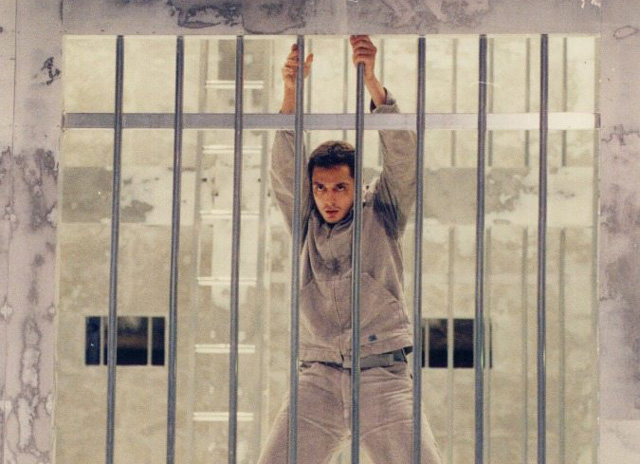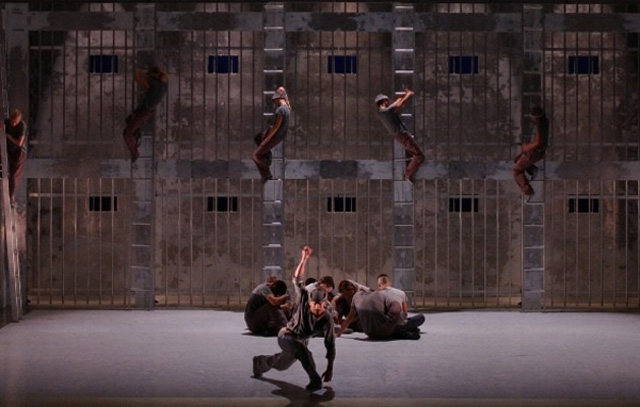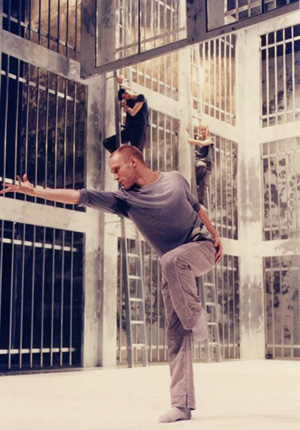Anyone would think the ballet world had lost the plot following the recent exploits at the Bolshoi, but now Sergei Polunin – former Royal Ballet star who quit unexpectedly last January at the height of fame, a week before an opening night – has bolted from yet another production: this time, the one supposed to herald his return to the British stage as a reformed character. Oops. But some are saying that Polunin’s sudden disappearance from the London Coliseum may be the most astute move he’s ever made.

Midnight Express is the tale of a young Billy Hayes, who was caught attempting to smuggle hashish out of Turkey in 1970 and later chronicled his traumatic experience at the hands of the Turkish justice system in a book. ‘Midnight Express’ is the term given to a prisoner’s attempt at escape and Hayes’ successful bid at freedom (after four years incarceration) was later depicted in Alan Parker’s Oscar-winning 1978 film adaptation. It is on this film that the Peter Schaufuss ballet is primarily based, and much of the original soundtrack is used.
If familiar with Giorgio Moroder’s score, you may well wonder how balletic choreography could march to its techno beats. And I’m afraid to say that the synthesized disco rhythms did not create as gripping an ambience here as in film. Perhaps in a bid to convey the story’s gravity and emotional turmoil, we continually moved between this and a mish-mash of Mozart’s greatest hits. The resulting juxtaposition seemed disjointed rather than evocative, and was not boosted by the illogical selection of classical excerpts; sections of Mozart’s Requiem were thrown in regardless of their lyrics alongside any old recognizable tune, such as the first movement of his 40th Symphony.

Another confusing element was the fact that, despite Hayes having been holed up in an all-male prison, the Peter Schaufuss company is mixed gender. Hence, the sight of female prisoners scaling the bars and prison guards with ponytails was somewhat baffling.
Encouragingly, the bright young Dane who learnt the lead role in only three days is highly worthy of note. Twenty-year-old Johan Christensen portrayed the boyish arrogance, vulnerability, fear and anguish of our flawed protagonist with admirable profundity whilst deftly maneuvering the part’s athletic demands. Moments of terror at the unknown horrors in front of him accompanied controlled reflection and then the dizzy heights of his mental despair, culminating in him biting out the tongue of a fellow inmate following a riotous argument. The end of the first act has Billy straddled over his victim, blood dripping down his chest, screaming at the atrocity to which he has just been driven. Though this does depict the absolute awfulness of his situation, it is telling of the choreography that such basic physicality is necessary to portray this harsh reality.
 The problem is that Peter Schaufuss’ choreography simply lacks sophistication. Moves are not developed and the nuances of the story are not adequately portrayed. The repetitious movements of the guards – as uniform as their attire – may have been more effective if executed with greater accuracy, but it was the effeminate wielding of a prop truncheon by the head interrogator, Hamid, that really took the biscuit. The sadistic, unmerciful Hamid supposedly torments his subjects with barbaric brutality, so when he stomps towards Billy, trepidation – I think – is supposed to whizz down our spines. Yet the light-handed brandishing of his weapon, which gets stroked around his victim’s neck or waved in his direction, does not generate any such acute nervousness. When said truncheon is used to pick Billy up by his legs and sacrificially spin him round, you begin to get the idea, but the concept is under-developed and remains frustratingly oblique.
The problem is that Peter Schaufuss’ choreography simply lacks sophistication. Moves are not developed and the nuances of the story are not adequately portrayed. The repetitious movements of the guards – as uniform as their attire – may have been more effective if executed with greater accuracy, but it was the effeminate wielding of a prop truncheon by the head interrogator, Hamid, that really took the biscuit. The sadistic, unmerciful Hamid supposedly torments his subjects with barbaric brutality, so when he stomps towards Billy, trepidation – I think – is supposed to whizz down our spines. Yet the light-handed brandishing of his weapon, which gets stroked around his victim’s neck or waved in his direction, does not generate any such acute nervousness. When said truncheon is used to pick Billy up by his legs and sacrificially spin him round, you begin to get the idea, but the concept is under-developed and remains frustratingly oblique.
At its heart, this story does have recognisable and vivid emotions, elements of which come out: parental love, Platonic solidarity, the valid limits of retributive justice, among others. There is no denying that the ballet makes you think, but there are not-unfounded whispers that Polunin may have escaped a role that could have damaged his reputation. Midnight Express is a powerful story but the ballet’s choreography does not achieve a suitable depth of storytelling, and the production lacks both cohesion and finesse.
And in case you were wondering, Sergei Polunin has surfaced “safe and well” in Moscow, so perhaps another tale is yet to unfold…
The London Coliseum run has now finished. For more information and future touring dates, visit the website.



